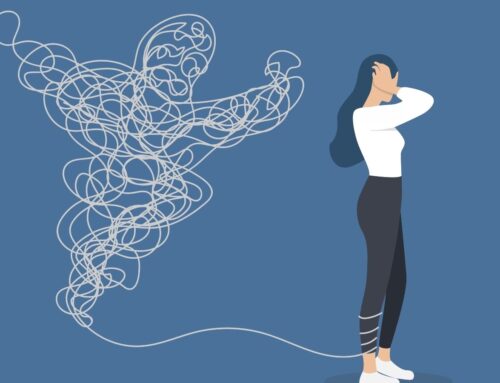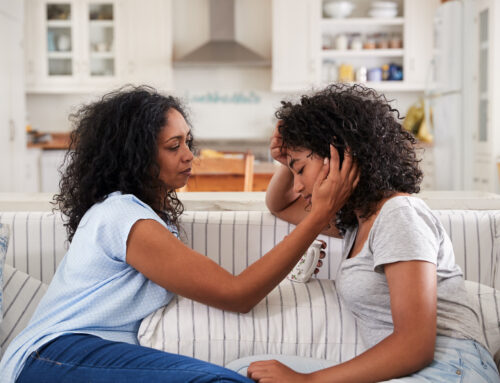While the effects of chronic sleep deprivation on our physical health are well known, researchers are finding that our lack of sleep is catching up to us in terms of our mental health, as well.
The neuropsychological relationship between sleep and mental health is not yet fully understood, but neuroimaging and neurochemistry studies suggest a mutual influence. What we know:
- Sleep problems are more likely to affect people with psychological disorders
- Sleep problems can both increase the risk of developing psychological disorders, as well as occur as a result of these disorders
- Treating sleep problems may help relieve certain mental health symptoms
Sleep problems are particularly common in people who experience symptoms of anxiety, depression, bipolar disorder, and attention deficit hyperactivity disorder (ADHD). Researchers from The Harvard School of Public Health explain that sleep difficulties impact our thinking and ability to regulate our emotions by influencing levels of neurotransmitters and stress hormones (among other things) in our brain and body. The bottom line: chronic lack of (or interruptions in) sleep can amplify mental health issues, and vice versa. The good news: although chronic sleep difficulties can set us up for negative thinking and emotional vulnerability, experts agree that good sleep habits can help boost our mental and emotional resilience.
It seems like everywhere we turn, there are messages about the importance of getting a good night’s rest. With all of this information, why are we still not getting it? While The National Sleep Foundation guidelines tell us that adults need 7-9 hours of sleep per night, and teenagers need 8-10 hours, many of us aren’t getting anywhere near that amount. In fact, statistics show that many Americans are chronically sleep deprived. So what gives? Experts say that sleep problems can be complex, and may have biological, behavioral, and environmental influences. With all of the demands in our lives (children, career, marriage, friends), making time to get the sleep we need, and relaxing our minds and bodies enough to actually fall asleep at the end of the day, can be a challenge. In our follow up post, “How to Get More Sleep: Tools to Help You Get Some Rest,” we have compiled a list of strategies that, experts say, can help us finally get some rest.
American Psychological Association. (2015). Why sleep is important and what happens when you don’t get enough.
http://www.apa.org/topics/sleep/why.aspx
National Sleep Foundation
http://www.sleepfoundation.org/
National Sleep Foundation: How Much Sleep Do We Really Need?
http://sleepfoundation.org/how-sleep-works/how-much-sleep-do-we-really-need
Harvard School of Public Health: Sleep and Mental Health
http://www.health.harvard.edu/newsletter_article/Sleep-and-mental-health
Mental Health Foundation, UK, (2011): Sleep Report
http://www.mentalhealth.org.uk/publications/sleep-report/
Krystal AD. “Sleep and Psychiatric Disorders: Future Directions,” Psychiatric Clinics of North America (Dec. 2006): Vol. 29, No. 4, pp. 1115–30





